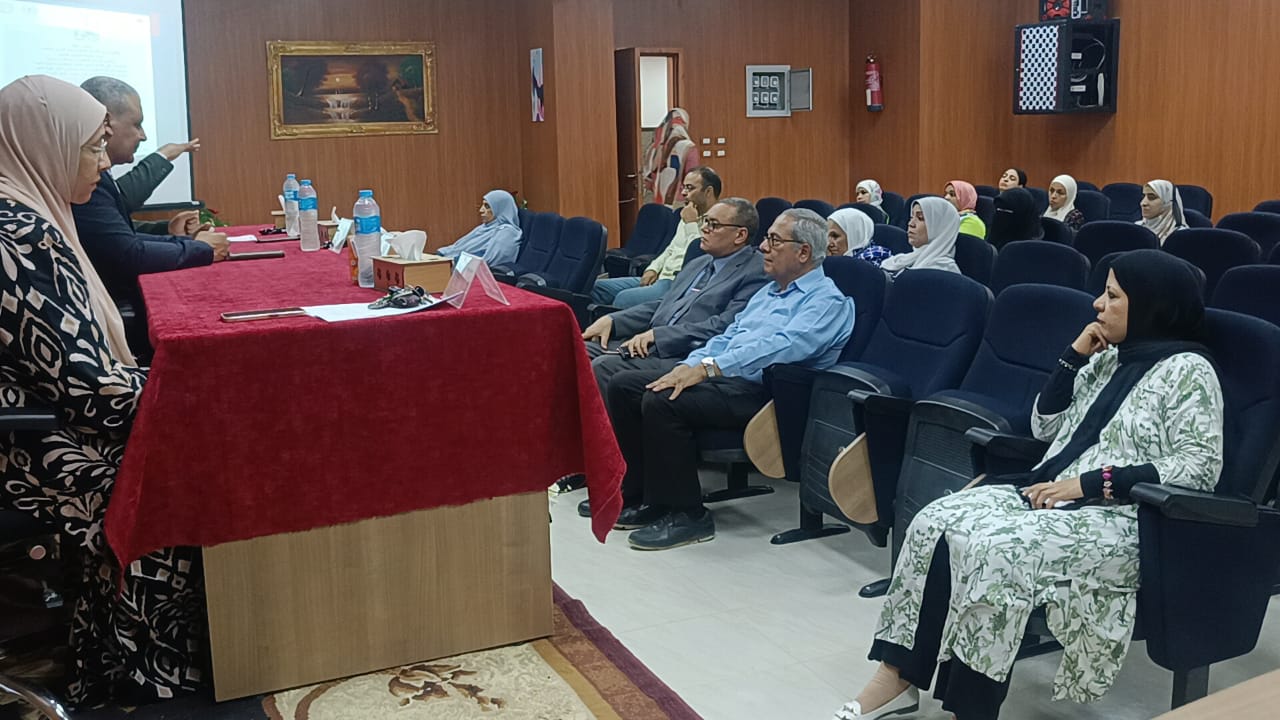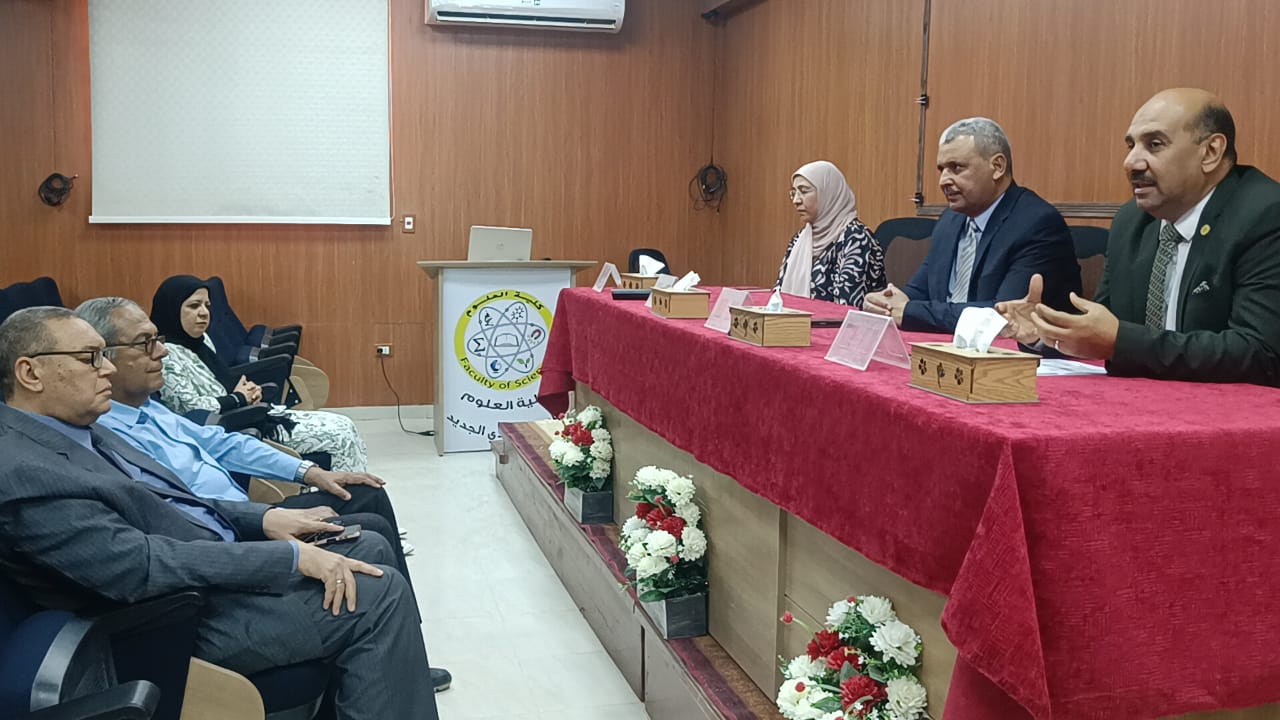At the Faculty of Science at New Valley University, a symposium titled "Carbon Footprint and the Launch of the Egyptian Voluntary Carbon Market"


Under the generous patronage of Professor Abdel Aziz Tantawi, President of New Valley University, and under the supervision of Professor Mustafa Mahmoud, Supervisor of the Community Service and Environmental Development Sector, and in the presence of Professor Ahmed Harbawy, Advisor to the University President for Institutional Development and former Vice President for Education and Student Affairs; Professor Reda Hassanein, Dean of the Faculty of Science; Professor Ayman Kassab, Dean of the Faculty of Agriculture; and Professor Rasha Mahmoud El-Shazly, Director of the Women's Empowerment Unit at the University's Center for Public Service for the Environment and Sustainability; and in the presence of faculty members, support staff, and students, a symposium was held at the Faculty of Science at New Valley University entitled "Carbon Footprint and the Launch of the Egyptian Voluntary Carbon Market" and its Role in Environmental Preservation and Achieving Sustainable Development. The symposium was attended by faculty members, support staff, and students from the Faculty of Science. Professor Reda Hassanein opened the symposium with a speech welcoming the attendees and emphasizing the importance of raising awareness of the dangers of climate change in fostering a culture of environmental conservation among New Valley University students. Professor Dr. Ayman Kassab then presented a review of the most important activities at the individual and institutional levels that contribute to an increase in the carbon footprint. He highlighted the importance of using renewable energy sources and safe waste disposal in reducing the carbon footprint.Professor Dr. Rasha El Shazly also gave a presentation, outlining the definition of the carbon footprint and how to manage it. She also explained methods for calculating the operational ranges of the carbon footprint at the individual and institutional levels.She also explained the role of the Egyptian state in achieving carbon neutrality by launching the Egyptian Carbon Market under the supervision of the Egyptian Financial Supervisory Authority and the Ministry of Environment, and the beginning of the activation of the first organized and monitored market for registering, issuing, and trading carbon reduction certificates on the Egyptian Stock Exchange. She also highlighted the need for all university faculties to participate in calculating the carbon footprint on campus to guide the university towards activities that support environmental sustainability. The symposium concluded with an explanation from Dr. Samia Makram, Director of the Women's Training Unit at the University's Center for Public Service for the Environment and Sustainability, on the seriousness of the improper use of laboratory equipment in increasing the carbon footprint, in addition to the need to rationalize electricity and fuel consumption to reduce the carbon footprint of New Valley University.
